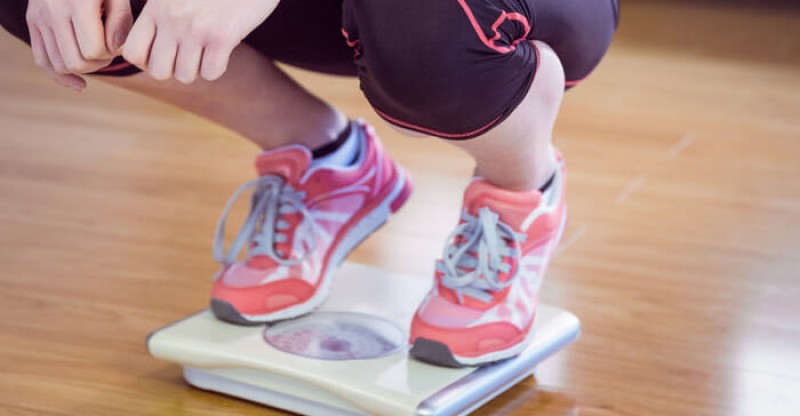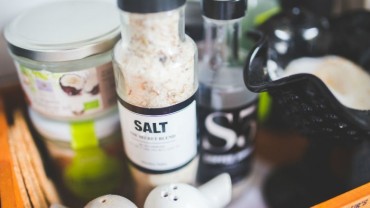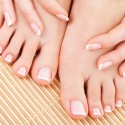Losing Weight without Diet or Exercise
Everybody wants to be fit and healthy, but everybody isn’t willing to make an effort to achieve those ends. The truth is that many of us don’t have the time to exercise regularly, and it isn’t always convenient to go on extreme diets. But to lose weight, you don’t have to exercise much or keep yourself hungry. So here are different tips and tricks you can use to lose weight.
Out of Sight, Out of Mind
A 2014 study found that 19.9% of people have a food addiction, which is characterized by intense food cravings. If you think you have a food addiction, perhaps your cravings can be subsided if you don’t put unhealthy food anywhere in sight. Seeing food will make you want to eat it, and unhealthy snacking will lead to weight gain. So clear your refrigerator, kitchen shelves, and kitchen counters of potato chips, ice cream, chocolates, or any other guilty pleasures.
Instead, keep healthy food (such as yogurt, hard-boiled eggs, nuts, fruits, and carrots) around in case you get hunger pangs. That way, you’ll fulfill your desire to munch on something without consuming lots of unwanted calories.
Get the Rest You Deserve
Don’t underestimate the need for beauty sleep. People follow a natural circadian rhythm, which includes a biological clock: at least eight hours of sleep is required for the body to rejuvenate itself.
Without enough sleep, you’re likely to increase your stress level, which is terrible for your weight. Hormones that regulate your appetites, such as leptin and ghrelin, don’t get released properly when you’re sleep-deprived. Similarly, cortisol levels may rise with increased stress, which can intensify your cravings for unhealthy food and cause you to take in more calories than you can burn off. Studies also show that your body mass index (BMI) increases when leptin and ghrelin are under-secreted.
Another study shows that inadequate sleep for just five consecutive days can cause a weight gain of almost 1 kg. Stress and severe sleep deprivation can also increase the risks of developing obesity and type 2 diabetes.
No More Sugary Drinks
Added sugar can be found in a lot of different food products, from breakfast cereals to fruit juice.
Beverages containing high amounts of sugar or high-fructose corn syrup have been associated with high risks of obesity, which can lead to cardiovascular diseases. In addition, these sweetened beverages don’t give you the feeling of fullness that solid food does, which means you’re bound to over-consume them. It’s also best to avoid fruit juice since its sugar content can be just as high.
Suppose you need a sugar fix, snack on filling fruits, such as berries, instead. One study found that berries can prevent weight gain and keep your blood sugar from getting too high.
Don’t Wolf Down Your Food
Remember when your mother used to reprimand you when you didn’t properly chew your food? You may not have liked it at the time, but it was actually sound advice. That’s because your brain does not immediately process when your stomach is full, which means that you tend to eat more than you need to.
By slowing down during meals and taking the time to chew properly, you are giving your brain enough time to get the signal that you’re full.
As a result, you are fuller, and you subsequently eat less. One major review of 23 studies proved that people who have the habit of eating their meals faster gain weight faster than those who eat slowly. Because eating quickly is associated with excess body weight, you need to spend more time chewing your food consciously.
Drink More Water
You’ve probably heard that water is the elixir of good health and fitness. It’s true. Studies have consistently demonstrated that water really does have a significant effect, which is even more enhanced when you replace sugary drinks with water. Water is beneficial for you on many different levels, so it really is a good idea to get into the habit of drinking eight glasses of water each day.
It has been found that water has a big role in boosting your metabolism by 24 to 30% over a period of 1.5 hours, which allows you to burn off calories at a faster rate. So, for weight loss, it seems especially important to drink water before meals, which can make you feel fuller.
Another study showed that drinking half a liter of water for half an hour before meals can help you lose about 44% of your body weight over a period of 12 weeks.
Eat Fiber-Rich Foods
Essentially, fiber helps you lose weight by making you feel full. When you feel satiated, you won’t crave foods with extra calories, which leads to binge-eating. Studies have found that higher fiber intake is associated with lower body weight. Specifically, viscous fiber is even more useful for your weight-loss goals.
Found only in plant sources such as orange, flax seeds, asparagus, Brussels sprouts, oats, and beans, viscous fiber transforms into a gel-like substance in the stomach, delaying emptying itself. So then you feel full for longer. By incorporating such foods into your daily meals or replacing carbohydrates and fats with them, you can enjoy a leaner figure.
Increase in Protein Consumption
Protein is another great thing to increase in your diet. Over and over again, it’s been shown to help with weight loss. That is why whey protein is a popular weight-loss supplement. A study has shown that replacing other sources of calories with whey protein can help you lose about 3.6 kgs of weight and increase muscle mass.
Other studies show that eating eggs (a great source of protein) for breakfast instead of grains can lower your calorie intake for the following 36 hours, which can help achieve weight loss. Other sources of protein include quinoa chicken breasts, almonds, and fish. They can improve satiety by affecting appetite-regulating hormones, such as GLP-1 and ghrelin.
According to a different study, a 15 to 30% increase in protein intake led to 441 fewer calories per day per participant. As a result, these participants lost around 5 kgs in 12 weeks.
Pay Attention to What You’re Eating
Most times, we hardly have the time to sit back and really enjoy what we’re eating. Instead, we’re too busy staring at the TV screen or scrolling through our social media accounts on our smartphones. Sometimes, we’re too busy engaging in conversation or looking at work emails.
In other words, we tend to get distracted during meals. And that’s exactly what causes us to stuff ourselves more than we should. One study found that when the level of background noise increases during meals, people lose their ability to perceive sweetness and saltiness, and they’re more likely to want to snack later.
Another review of 24 studies found that distracted people during meals ate 10% more than focused eaters and even consumed 25% more calories at subsequent meals. So it’s rude and unhealthy to use your phone during meals!
Reduce Your Portions
You may not have realized it, but we often eat more food than we need to satisfy our hunger, and we proceed to continue eating even when we’ve had enough.
You’re probably aware that serving sizes are getting larger and larger. According to one study, doubling the portions of an appetizer alone can increase calorie intake by 30%.
Many other studies have confirmed that large portions cause weight gain and obesity. So to help yourself eat less at every sitting, serve food (especially if it’s unhealthy) on smaller plates because the serving will look bigger, and you’ll be tricked into eating less.
It is also thought that the color red can trigger a reaction in your brain that makes you eat less, so you can serve unhealthy snacks and drinks at parties on red plates. So make an active effort to limit your portions, and order smaller-sized portions when you’re eating out.
Record Your Progress
It is always helpful to remind yourself of your weight-loss goals and track where you are on that journey. One tried, and true method is keeping a food diary, which involves recording what you’re eating every day. This practice makes you more conscious about what you’re consuming and helps you eat more healthy foods lower in carbs, fat, or sugar.
Another useful technique is to take photos of what you’re eating. Of course, nobody likes it when people upload pictures of all of their meals to Instagram, but you can have a personal photographic food diary to keep track of your unhealthy eating habits.
Because they cause you to rethink your food decisions right before you eat, one study claims that taking photos is even more effective than writing. However, as shown in a study on obese and overweight participants, an even easier tactic is to text or email yourself a short report of your food intake, motivating you to keep on the right track.
You can also try using calorie counting apps or websites.
Be Positive
You might remember a time when you’ve come home grumpy or stressed out and proceeded to finish an entire bag of chips or a whole tub of ice cream in one sitting.
According to clinical psychologist Sharon Robertson, “Positive psychology techniques promote positive thinking and positive feelings, and this ‘feel good’ effect may lead to an increase in motivation. In the case of weight loss specifically, it can promote weight loss behavior.”
Her study focused on improving hope, personal strengths, and general happiness in women over four weeks, and it found that the majority of them lost weight and continued to do so.
Another study claims that when we are in a good mood, we tend to look at the bigger picture and make more nutritious food choices. Meanwhile, bad moods lead us to consume ourselves with negative thoughts and fattening foods. So follow Bobby McFerrin’s advice: “Don’t worry, be happy.” Then you’ll enjoy weight loss!
Cook with Healthy Oils
You may not be losing weight because you cook with unhealthy oils at home.
Substituting your regular oil for a healthy one that promotes weight loss is a minor change, but it can produce a not-so-minor effect on your weight.
The clear winner is coconut oil, which tastes good and has numerous benefits. The fats in coconut oil are healthy, and along with lowering cholesterol, they can boost metabolism, improve satiety, and reduce body mass indexes.
Similarly, the conjugated linoleic acid in butter has made rats resistant to obesity.
Meanwhile, olive oil has a high concentration of monounsaturated fatty acids, reducing lipid levels, promoting HDL cholesterol (which is a good thing), and lowering LDL cholesterol.
Drink Coffee or Green Tea
We’ve already established that you shouldn’t be drinking sugary beverages (even fruit juice) regularly.
So aside from water, what should your go-to beverage be? The answer is tea or coffee, particularly green tea and black coffee (without sugar or cream).
Much research has been done on the effects of coffee and caffeine, and it has been found that it can boost metabolism by 3 to 11% and increase fat burning by 10 to 29%. Green tea also has caffeine, but it has antioxidants called catechins, which enhance body-weight regulation and energy burning. Other studies show a positive association between green tea intake and weight loss.
Conclusion
As you can see, these tips only require you to make minor tweaks to your routine. Furthermore, they are all backed by scientific evidence, and best of all, they don’t require you to engage in either dieting or exercise! So get ready to take a shortcut to weight loss.
FDA Compliance
The information on this website has not been evaluated by the Food & Drug Administration or any other medical body. We do not aim to diagnose, treat, cure or prevent any illness or disease. Information is shared for educational purposes only. You must consult your doctor before acting on any content on this website, especially if you are pregnant, nursing, taking medication, or have a medical condition.
HOW WOULD YOU RATE THIS ARTICLE?






